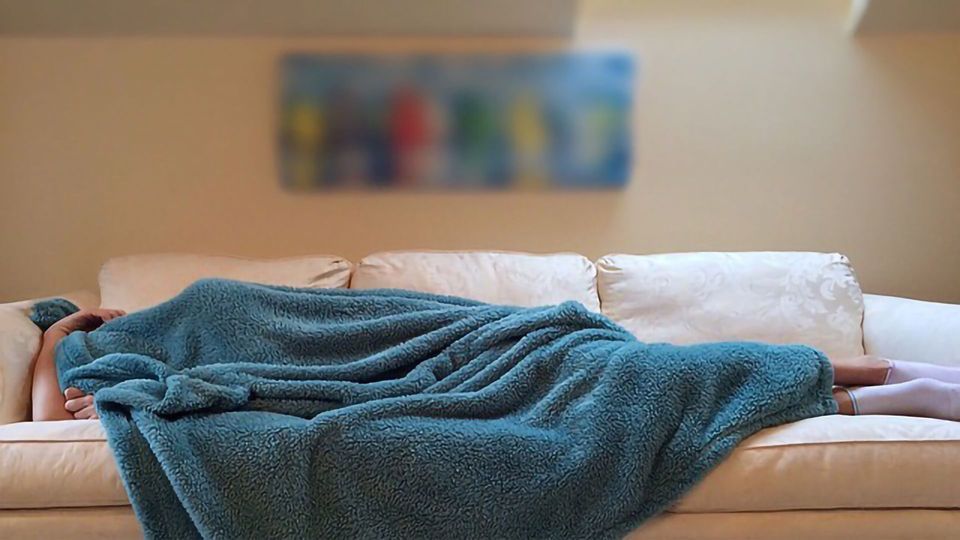A Third "Short Sleep" Gene Has Been Discovered – And It Prevents Memory Deficits

Complete the form below to unlock access to ALL audio articles.
There are very few things in life more precious than a good night's sleep.
If you're sat reading this while clutching a full-to-the-brim coffee cup, weary eyed and exhausted from not catching enough zzz's last night, you're probably not alone. Statistics suggest that Americans sleep 6.8 hours per day on average, down more than an hour from 1942. Whilst 59% of Americans get seven or more hours of sleep at night, 40% get less than seven hours.
You might recall that in August of this year, scientists from the University of California San Francisco (UCSF) published a study that filled us all with envy. The researchers identified two human genes that promote "natural short sleep", that is, nightly sleep that lasts just four to six hours. Despite this sounding an alarmingly short amount of sleep, individuals possessing the genes actually wake up feeling refreshed and well-rested.
A third "short sleep" gene
Now, in a new study published in Science Translational Medicine, the UCSF scientists who discovered the previous two genes has discovered a third "short sleep" gene. Interestingly, this gene is also the first that has been shown to prevent the memory deficits typically associated with sleep deprivation.
"Ten years ago, when we identified the first short sleep gene, the field of sleep genetics was in its infancy. People didn't think that genes could significantly influence sleep behaviors, and big breakthroughs were rare. Today the field is advancing much more rapidly, and we're beginning to get a better picture of how important your genes are to getting a good night's sleep," said Ying-Hui Fu, PhD, a professor of neurology and member of the UCSF Weill Institute for Neurosciences who has led the research teams that identified all three known short sleep genes.
For this father and son, eight hours of sleep isn't essential
Fu and her colleagues identified a single-letter mutation in a gene known as neuropeptide S receptor 1 (NPSR1) in a father-and-son pair whilst performing whole exome sequencing in a family of short sleepers. The father and son average an astonishing 5.5 and 4.3 hours of sleep per night.
The NPSR1 gene encodes a signaling protein that lies on the surface of neurons and has been previously implicated in regulating sleep. Unfortunately for the general population, this mutation is extremely rare – occurring in less than one in four million individuals.
Unlike other natural short sleepers, the father and son do not experience the adverse cognitive effects that are linked with sleep deprivation. But why?
NPSR1 promotes wakefulness
Using mouse models genetically engineered to carry an identical "mouse version" of the mutation in NPSR1, the researchers homed in on the function of this gene in the brain. They found that mice expressing the mutation spent less time sleeping and were more physically active than controls.
Under normal conditions, the NPSR1 protein promotes wakefulness. When activated, it signals the switching on of other proteins in the same pathway by attaching a chemical modification with them. The scientists decided to inject a compound that triggers NPSR1 activation in both the control and genetically engineered mice and analyzed the downstream effects. They found that the mutant NPSR1 activated many more downstream proteins in the cellular pathway than the non-mutant version.
In parallel, the scientists conducted a complimentary study in which they discovered the mutant form of NPSR1 is much easier to trigger than the non-mutant protein.
Collectively, these findings suggest that the mutant form of NPSR is easier to activate and is also superior at "switching on" the downstream components of the wakefulness-promoting cellular pathway than the non-mutant form.
What about memory?
"There are serious health consequences associated with sleep deprivation," said Louis Ptáček, M.D., professor of neurology, co-senior author of the new study, and a member of the Weill Institute. "People who are chronically sleep deprived are more likely to suffer from obesity, diabetes, cardiovascular problems, depression and cognitive deficits."
Fu and colleagues next decided to conduct a memory test to explore the impact that the genetic mutation has on cognition. Mice were placed in a specially designed chamber and encouraged to explore their environment for a few minutes. Then an electrical current was activated to gently shock their feet. Under normal conditions, when mice are removed from the chamber and returned to it a day later, they have formed an associative memory between the chamber and the shock, leading them to either freeze or explore the chamber more slowly. This behavior, however, relies on them having sufficient sleep. Mice that are sleep-deprived exhibit memory deficits in this test, and have difficulty forming the memory of the shock experience.
Carriers of the mutant NPSR1 protein did remember the electric shock, despite being sleep deprived.
"NPSR1 not only promotes short sleep, it also prevents memory problems that usually result from sleep deprivation," Fu said. "This is the first gene that anyone's discovered that exerts a protective effect against one of the many adverse consequences of sleep deprivation."
A novel therapeutic target?
The scientists believe that, as the NPSR1 protein is a cell-surface receptor, their discovery may lead to a potential druggable target for therapies that improve sleep and help alleviate the symptoms of sleep disorders. "Not only does this discovery provides us with a better understanding of how genes contribute to an unusual sleep phenotype, it also offers up an appealing target for future therapies that may help treat sleep disorders or prevent certain cognitive deficits associated with lack of sleep," Ptáček said.
Reference:
Xing et al. 2019. Mutant neuropeptide S receptor reduces sleep duration with preserved memory consolidation. Science Translational Medicine. DOI: 10.1126/scitranslmed.aax2014.



